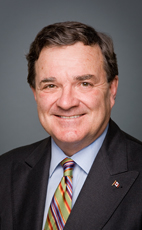Mr. Speaker, indeed, the banks and financial institutions in Canada pay very substantial taxes each year. They are a tremendous success story. As we look around the world now at the global recession, the worst recession since the 1930s, Canadian financial institutions stand out worldwide as being reliable, solid, well regulated and a beacon of financial stability in a troubled economic world.

